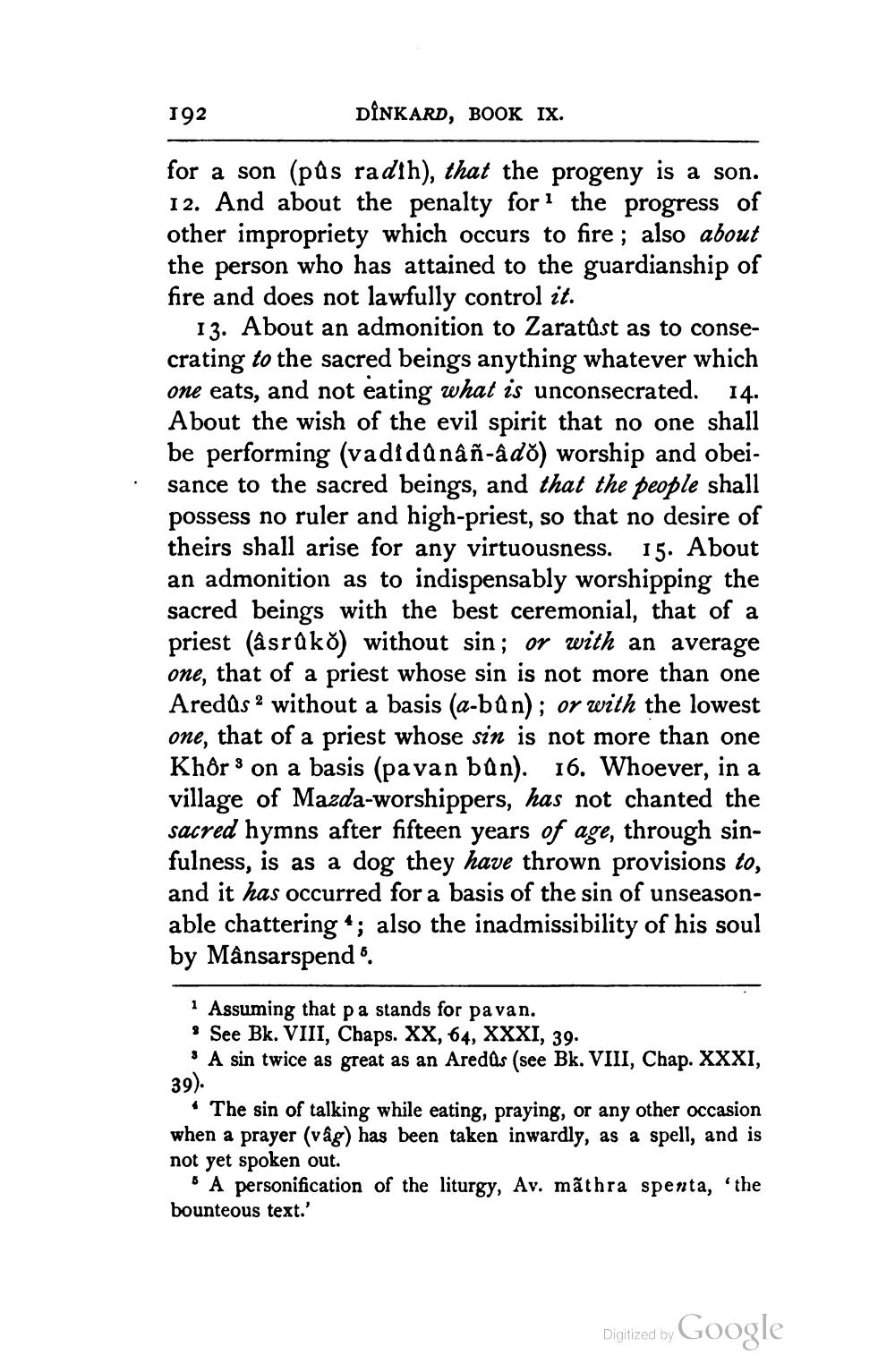________________
192
DINKARD, BOOK IX.
for a son (pûs radih), that the progeny is a son. 12. And about the penalty for the progress of other impropriety which occurs to fire ; also about the person who has attained to the guardianship of fire and does not lawfully control it.
13. About an admonition to Zaratūst as to consecrating to the sacred beings anything whatever which one eats, and not eating what is unconsecrated. 14. About the wish of the evil spirit that no one shall be performing (vadidů nâñ-âd) worship and obeisance to the sacred beings, and that the people shall possess no ruler and high-priest, so that no desire of theirs shall arise for any virtuousness. 15. About an admonition as to indispensably worshipping the sacred beings with the best ceremonial, that of a priest (âsrako) without sin; or with an average one, that of a priest whose sin is not more than one Aredus 2 without a basis (a-bûn); or with the lowest one, that of a priest whose sin is not more than one Khôr : on a basis (pavan ban). 16. Whoever, in a village of Mazda-worshippers, has not chanted the sacred hymns after fifteen years of age, through sinfulness, is as a dog they have thrown provisions to, and it has occurred for a basis of the sin of unseasonable chattering *; also the inadmissibility of his soul by Mânsarspend 6.
1 Assuming that pa stands for pa van. * See Bk. VIII, Chaps. XX, 64, XXXI, 39. • A sin twice as great as an Aredūs (see Bk. VIII, Chap. XXXI, 39).
• The sin of talking while eating, praying, or any other occasion when a prayer (vâg) has been taken inwardly, as a spell, and is not yet spoken out.
SA personification of the liturgy, Av. mathra spenta, 'the bounteous text.'
Digitized by Google




